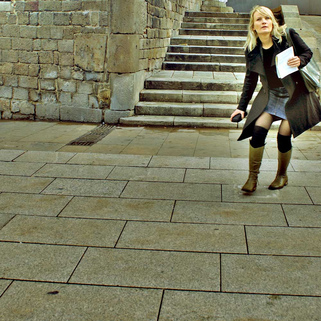- Home
- Sermons
- Movies That Cook
- Things for Your Kitchen
- Walk to Emmaus- Luke
- The Unknown God- Acts 17
- Prayer for the Church
- Charlotte/ Acts 8:26-40
- Sower/Jacob
- Jacob/Prodigal Son
- Jacob/Romans 8
- Jacob Wrestling and Blessing
- Jacob learning to live with a limp
- FTF Timothy
- The Field is Ready, Genesis/Romans
- romans 8
- Philippians 2:1-13
- Ruth Dinsmore- Acts
- Philippians 3: 5-14
- 1 Thessalonians 1:1-10
- 1 Thessalonians 2: 1-8
- 1 Thessalonians 2:9-20
- 1 Thessalonians 4:13-19
- 1 Thessalonians 5:1-11
- New Page
- Advent 1 Isaiah 64
- Advent 3 Isaiah 61
- Christmas Eve Isaiah 9: 1-7
- Baptism of Jesus Mark 1
- Mark 1: 14-20
- Breathe: Mark 1:21-28
- Backyard Basics 4: Belong
- Ash Wednesday
- Backyard Basics 5/Blessings 1
- Backyard Blessings 2: Generations- Genesis 17
- Backyard Bless 3-CreationPsalm 19
- Backyard Blessings 4: Healing Ps 107
- Backyard Blessings 5: Love-Jeremiah 31
- Easter Blooms John 20:1-18
- Backyard Blooms: Luke 24:36-48
- Vines- John 15: 1-8
- John 15:9-15 Blessings: Friends
- Bkyd Blooming: COnfidence- Acts 1
- Backyard Breeze! Acts 2
- Bkyrd Breezes:Isaiah 6/Romans 8
- Bkyrd Brz: 1 Samuel 3/2 Cor
- Mustard Seed Annointing
- Bkyrd Breezes: Courage
- Mark 6:1-13, Romans 12 Bkrd Breezes: Wisdom
- Bkyrd Bodybuilding-Core- Ephesians 2
- Bkyrd Bodybuilding- Cardio- Ephes 3
- Backyard Bodybuilding: Legs, Back, Chest, Arms!
- Bkyrd Bodybuilding- Nutrition-Ep 4
- Mark 10:35-45
- Mark 8:27-38
- Mark 9:30-37 Bkyrd Stmbling:Pride
- Bkyrd Stumbling Blocks: Patriarchy
- Mark 4 Combined Service
- Mark 12: 28-34 Backyard Bounty: Love
- Backyard Bounty: Value
- Backyard Bounty: Encouragement Mark 13:1-8
- Backyard Bounty: Abundance!
- Backyard Birthing: Speak- Advent 3
- Backyard Birthing: Sing! Luke 1:39-46
- Christmas Eve- Ressurection
- Luke 2: 21-40 A Once Over
- Epiphany- Matthew- Star of Wonder
- Beyond the Backyard: The Call-
- Beyond the Backyard: The Message- Luke 4
- Beyond the Backyard: Words Matter- Jeremiah 1:4-19
- Beyond the Backyard:
- Beyond the Backyard: Compassion
- Beatitudes: Imagine 1
- Imagine: Beatitudes- Meekness
- Imagine Beatitudes: No countries: Hungry, Thirsty, Filled
- Imagine Luke 15
- Easter Sermon: Mary- Through our Tears
- Imagine: Beatitudes- Mercy and Pure Heart
- Imagine Beatitudes: Peacemakers
- Imaging: Beatitudes- Persecution/Rejoice!
- New Page
- Say yes! (Fig Tree/Potter/Ps139)
- 1 Timothy 1:12-17 Things we leave behind
- Say Yes: What we Bring- Luke 14
- Luke16- Lazarus and the Rich Man
- Luke 17:1-10- increase our faith
- Luke 18- Widows, Judges, Labels and MIrrors
- Pharisee, Tax Collector, Mirrors, and Prayer
- Luke 19:1-10 -Zacchaeus
- Luke 20:27-38 Seeing Scripture Differently
- Seeing church differently Luke 21:5-19
- John 6- Obstacles:Seeing community differently
- Compassion Advent 2
- Advent 3 Compassion 3 Mary
- Advent 4: Compassion/Joseph Mt 1
- The Nice List- Christmas Eve
- Baptism of Jesus-Matthew
- No Matter What: 1. Abraham
- No Matter What: Jacob
- No Matter What: Jacob/Tamar
- No Matter What: Rahab
- No Matter What: David
- On the Road Again: Into the Unknown
- On the Road: Nicodemus
- Woman at the Well COVID-19
- On the Road Again: Man Born Blind
- On The Road Again: The Rest of Us
- Easter: Up and On the Move-Mt. 28
- Risen? Or Fake News? Mt. 28: 11-20
- How the Virus Stole Easter
- Emmaus, On the Road...Again?
- Interruptions and Upheavals 2: Acts 2
- John 14:1-14, 1 Peter 2:2-10
- Acts 17:22-31 Interruptions and Upheavals 4
- Know, Share, Go... Together- John 17
- Acts 2: For Such a Time as This
- Christ In Us: A Living Sanctuary Matthew 10
- Christ in Us: Listening to YHWH
- Christ in Us: Love Anyway
- Christ in Us: Abundance
- Christ in Us: Abundance- Matthew Sower/Romans 8
- Christ in Us: Acceptance
- Christ in Us: Gratitude
- Untitled
- Creation: Forest: Genesis 2:4-14
- Creation: Land: Genesis 4:
The Art of Protest, Part 1- FaithLuke 18:1-8
Then Jesus told them a parable about their need to pray always and not to lose heart. He said, “In a certain city there was a judge who neither feared God nor had respect for people. In that city there was a widow who kept coming to him and saying, ‘Grant me justice against my opponent.’ For a while he refused; but later he said to himself, ‘Though I have no fear of God and no respect for anyone, yet because this widow keeps bothering me, I will grant her justice, so that she may not wear me out by continually coming.’” And the Lord said, “Listen to what the unjust judge says. And will not God grant justice to his chosen ones who cry to him day and night? Will he delay long in helping them? I tell you, he will quickly grant justice to them. And yet, when the Son of Man comes, will he find faith on earth?” |
Introduction |
This is Part 1 of 4 in a sermon series on protest. See the full series plus audio here
|
The Sermon |

Historically the church has been a place of worship, yes, but also a place of equipping- a place of preparation- a training ground for the saints to learn how to stand up for the weak. We need to reclaim our heritage as peace builders, as advocates for the ones without. In doing this we follow in the steps of our leader, Jesus Christ.
And that seems simple enough. But as we’ll see as we look at this parable, many of us have some work to do before we can stand up for anyone else. The story begins with an unjust judge- "a judge who neither feared God nor had respect for people." And right away we know one thing about this judge- he is not God. In 1st century Judaism, a judge "was the primary interpreter of the Torah, who adjudicated serious differences between people in the light of the Torah... The task of the judges was to serve the interests of their rulers (systems), not to dispense impartial justice... Jesus assumes his listeners will understand when he starts to tell a story about the unjust judge." (1) Next, Jesus introduces us to a widow. (In Greek: "One without") The widow is someone who has been treated unfairly by "her opponent." She represents the most exploited; the bottom of the barrel of society. She has no one to speak for her. The judge refuses to help her, and will not come down with a verdict against whomever or whatever is oppressing her. Yet, this widow, this 'one without,' gets the unjust judge relent. How? She bothered him- she persisted- she protested! It's important to notice that the widow had nothing to hold over this judge’s head to get him to do what she wanted; I believe Jesus picked a widow to represent the oppressed in this story because the widow truly imposed no threat. She had nothing to withdraw- no recourse- no violent or non-violent revenge to enact should the judge not give her what she wanted. What’s more, the widow knew the rules for someone in her situation. She had grown up in a society that told her that widows have nothing- they aren’t supposed to- and they don’t deserve to. And I ask myself, with no power at all- and with the reality of what she was supposed to live out according to the system staring her in the face, how did she, on her own, protest to power? There is only one way as far as I can see; somewhere inside of her, she knew she was worth fighting for! She didn’t buy in to the socialization and inferiority she was supposed to have internalized. instead, she claimed she was worth more than the system told her she was; and from that belief, from that place of faith, she was able name what she needed- and fight for it! And it was from that place that she gathered strength (daily) to go back to the judge, even though she knew she would be rejected over and over. And this is where you and I may need a bit of work… At one time or another, and to one degree or another, many of us were taught that our power is limited. And while this can happen in any number of ways on an individual basis through abuse, or neglect, or addiction, etc., there are whole communities which have been taught they have no power at all. There are levels of oppression- from the horrors that the African American community endures, to people with disabilities, to misogynistic treatment of women, to discrimination in the LGBTQmunity, to marginalization and oppression of the poor, mentally ill, the immigrant, the homeless… not to mention a planet which is routinely and systematically abused. And for the oppressed, in whatever category one may find oneself, there is a consistent (persistent) teaching- you don’t deserve ________ (fill in the blank). And that message is bullied into us- and it is so strong and so pervasive (deep) that we end up believing it. That is called socialization; when we believe the lies that others tell us about ourselves. And once that message is internalized, we don’t believe in our value, much less that we are worth standing up for. Jesus asks at the end of the parable: When the son of man comes, will he find faith on earth?” Each of us, whether we consider ourselves "oppressed" or not, has faced numerous unjust judges- voices which have told us no, over and over again- and hammered into our minds and hearts- "you don’t deserve that." And every time we allow ourselves to buy into that- we decrease our faith in God just a little bit. Because what does our faith in God tell us about ourselves, regardless of our station or situation in life? That we are valuable beyond measure, that we are equal to, that we are precious and saved and raised to sit with Christ!!! That’s what our faith in God tells us!!! Admittedly, the church has been right there through the years along with the systems of oppression- and in some cases, the voice of the church has been the voice of the unjust judge- scolding you- into thinking that you don’t deserve- that you are less than, that you should be groveling your way to the throne because you are an unworthy sinner- that you will never be good enough, or smart enough, or kind enough, or white enough, or straight enough, or old enough or holy enough… But listen- this is not how God sees you! And while, yes, we do things wrong, and yes we are all sinners, and yes we do need to come to the throne of God in humbleness and with humility, we also approach that throne with boldness, and surety, and strength! Our confidence to do so lies in the truth that the God we approach will never reject us, will never turn us away, and will never call us less than! Our faith is the knowledge that we- that NO ONE- deserves to be mistreated! Our faith is pushing past the mental block in our heads that say "no," and "don't" and "can't"- and giving voice and power to the desires of our hearts which long to hear "yes," and "do," and "can!" Our faith is in the God who grants justice to the ones who cry to God day and night- the God who also has faith in us to cry out for those who can't cry out for themselves. So let’s take that seriously. The first step of protest, is faith… |

